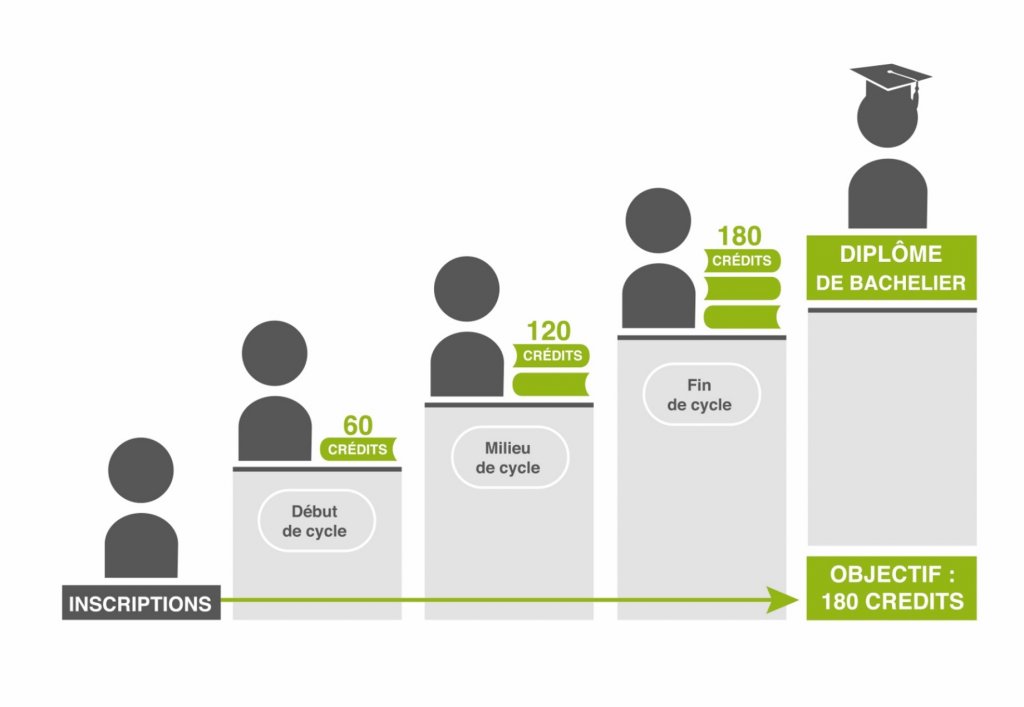Credit Accumulation System
Higher education in the Wallonia-Brussels Federation is organised according to the provisions of the “Paysage” decree. The concept of “study years” is obsolete and has been replaced by a credit accumulation system.
An ECTS (European Credit Transfer and Accumulation System) credit is a unit of overall working time spent by the student, corresponding to 30 hours of learning activities (courses, practical work, placement, etc.). ECTS focuses more on student learning. It is a central instrument of the Bologna process, which aims to make national systems more compatible.
Each study programme is presented in the form of an annual block of 60 credits, which are proposed, by default, to the student. It is possible, however, for students to customise their annual programme (PAE) at the beginning of each academic year, subjects to agreement by the Board. The PAE depends on the credits that the student has gradually acquired during their course. The student graduates when all credits in the study programme have been obtained.
Credits are associated with educational components (EU).
Each educational component comprises one or more learning activities (AA).
With some exceptions, a teaching unit is taught over one term (usually the first or second) and is assessed at the end of it.
The pass mark for an educational component is set at 10/20. If this mark is achieved the credits associated with the educational component are automatically granted by the Board.
ECTS credits express the volume of learning based on the defined learning outcomes and their associated workload. 60 ECTS credits are allocated to the learning outcomes and associated workload of a full-time academic year or its equivalent, which normally comprises a number of educational components to which credits (on the basis of the learning outcomes and workload) are allocated. ECTS credits are generally expressed in whole numbers and are awarded to the student by the Board.
The Student’s Annual Programme, as approved by the Board, is a coherent group of educational components of a study programme on which a student is duly registered for an academic year, during which they attend classes, sit the corresponding exams and are assessed by the Board.
Learning activity or set of learning activities that are grouped together because they have common objectives and constitute a training package at the level of the expected learning outcomes (max. 30 credits).
A learning activity includes:
- courses organised by the institution, including lectures, supervised exercises, practical work, laboratory work, seminars, creative exercises, research workshops, excursions, visits and placements
- Individual or group activities, including preparation for exams, research, end-of-studies projects, and professional integration activities
- Study, self-study and personal enrichment activities.
Organisational division of the teaching activities of an academic year covering approximately 4 months.
The academic year is divided into 3 terms:
- 1st term: 14/09 – 31/01
- 2nd term: 01/02 – 30/06
- 3rd term: 01/07 – 13/09


